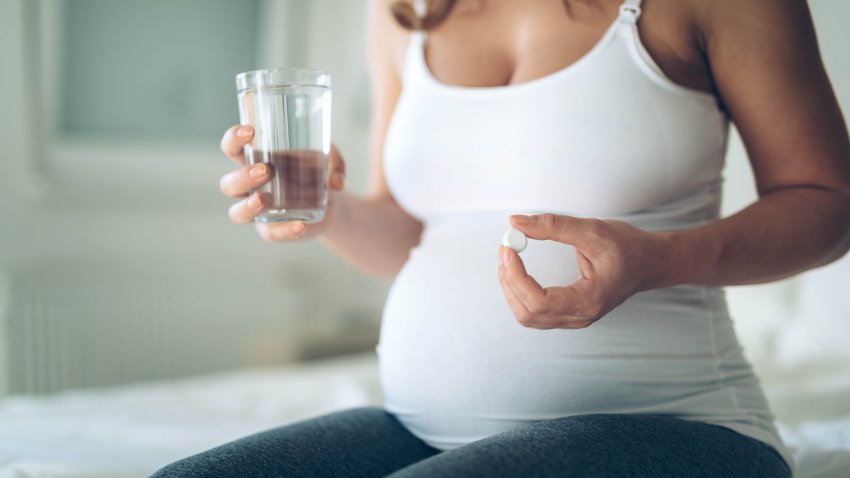-

Would you risk catching the flu for $1,900? Maryland study to look at spread of illness
Nobody likes getting the flu. The sore throat, the stuffy nose, the coughing, the fevers and chills — there’s not much to like, and it’s certainly not something most people would choose, if they had the option. But if getting sick could put $1,900 in your bank account, many people would consider it. To figure out how the flu is…
-

Acetaminophen use during pregnancy linked to language delays in children
A recent study by the University of Illinois links acetaminophen use in pregnancy to mild delays in children’s language development.
-

Custom made by students, mobility chairs help special needs toddlers get moving
Nineteen-month-old Elijah Jack is unable to walk like most toddlers his age. Special needs children like him often take longer than most to become independently mobile.
-

New study shows severe obesity is increasing among kids in the US
A new study by the journal Pediatrics shows obesity rates are increasing among children in the U.S.
-

Global decline in male fertility linked to common pesticides
A prolonged decline in male fertility in the form of sperm concentrations appears to be connected to the use of pesticides, according to a study published this week.
-

What is tuberculosis?
Tuberculosis is a highly contagious bacterial disease spread through the air. Here’s what you need to know.
-

Doctors conduct double-lung transplant with breast implants
“We felt like with the lungs taken out we needed something to support his heart,“ said Dr. Ankit Bharat at the Northwestern School of Medicine. “The DD breast implants seemed to be the perfect fit, and frankly they were the biggest we could get.”
-

A new toothpaste could help adults with peanut allergies, study hints
Two dozen adults safely tolerated a toothpaste with trace amounts of peanut protein in an early-stage trial.
-

Syphilis cases in US newborns skyrocketed in 2022. Health officials suggest more testing
Syphilis cases in U.S. newborns again are on the rise. It has health officials calling for new measures to stop the increase, including encouraging millions of sexually active women of childbearing age and their partners to get tested.
-

New antibiotic shows promise for drug-resistant gonorrhea
Gonorrhea, the second most common STI in the U.S., has developed resistance to all antibiotics used to treat it, except for one last recommended therapy.
-

Maryland man who received second pig heart transplant dies, hospital says
Maryland doctors say the second person to receive a transplanted heart from a pig has died.
-

Cleveland biochemist is contributing to medical breakthroughs at 90
At 90 years old, renowned Cleveland Clinic biochemist Dr. George Stark is part of a team working on an ointment that could cure skin cancer.
-

What is leishmaniasis?
Leishmnaniasis is a parasitic disease that spreads bites from phlebotomine sand flies.
-

Maryland man who had pig heart transplant working to regain strength month after surgery
It’s been a month since a Maryland man became the second person to receive a transplanted heart from a pig.
-

Why it's OK to hit the snooze button, according to science
Researchers in Sweden asked people to spend several nights in a sleep lab — and then hit snooze on their alarms in the morning.
-

Can your sweat turn blue?
Chromhidrosis is a disorder of the sweat glands that manifests with colored sweat on the face, in the underarms, or on the areola of the breasts.
-

I took Finland's free masterclass on happiness: Here are 3 things I learned
Finland is the No. 1 happiest country in the world, and they’re offering a free masterclass about happiness. Here’s what I learned from the course.
-

Surgeons perform second pig heart transplant, trying to save a dying man
Surgeons have transplanted a pig’s heart into a dying man in a bid to prolong his life.
-

Pig kidney transplant for NYC hospital patient works for record 2 months in donated body
It marked the longest a genetically modified pig kidney has ever functioned inside a human, albeit a deceased one. And by pushing the boundaries of research with the dead, the scientists learned critical lessons they’re preparing to share with the FDA — in hopes of eventually testing pig kidneys in the living.
-

I took a test to determine my ‘biological age': ‘We call it the credit score for the body,' Harvard scientist says
More companies are testing people’s DNA to determine their “biological age” based on genetics, in hopes of reversing aging. I tried one; here are my results.

